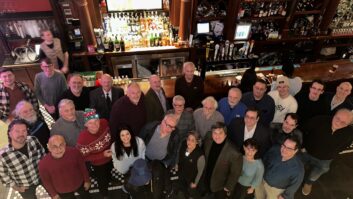The author is webmaster of HobbyBroadcaster.net and CampusBroadcaster.net and a former radio chief engineer. He responds here to our recently-published article “FCC Cites BSW Over Transmitter Certifications.”
It appears that the Federal Communication Commission is going after low-hanging fruit in citing retailers like B&H Photo and Broadcast Supply Worldwide in regards to non-compliance of certain Part 15 FM transmitters previously offered for sale, as reported at radioworld.com.
Back in 2017 I had discussed the Rolls HR70 transmitter in my HobbyBroadcaster.net site’s forums. At the time, there was no mention of an FCC certification number on the device nor a record in the Office of Engineering and Technology database, let alone details regarding this in the instruction manual. (Photos of the device with the word “Transmiter” didn’t bring confidence.)
My sound reinforcement hardware contractor was told by Rolls that they didn’t have to be FCC registered “because they are below the specified wattage.” I’m happy I didn’t order an evaluation unit from my local jobber as I wouldn’t have wanted them to get unfairly cited. Interestingly, it appears that according to the FCC’s OET, Rolls received FCC certification status on March 24, 2021.
The Decade model cited, the MS-100, was FCC certified back when I reviewed the transmitter on my site in July 2009. I’m unsure of other models but the one I received also included an appropriately worded manual.
But anyone with access to eBay or Amazon can purchase a non-Part 15-compliant FM transmitter with power outputs ranging from a fraction of a watt to several hundred watts — and most certainly not with FCC certification!
With power a bit over 11 nanowatts into a dipole for Part 15.239-compliant field intensity, it’s quite apparent the majority of no-name transmitters are overpowered, not to mention the high possibility that these cheap imported devices will chuck spurs into the aeronautics band, possibly endangering the flying public.
The $64,000 question is why the FCC isn’t going after the manufacturers instead. It’s been well-documented that the manufacturer of one particular FM transmitter that promises whole-house coverage has questionable practices.
[Read More Guest Commentaries Here]
First, they include an extra wire in the package labeled “International Antenna Option” along with a rather flimsy warning not to use it. If it’s “international,” why is it supplied on domestic orders?
Second, an undocumented “High Power Mode,” unmentioned in the accompanying manual (or the version on the OET exhibit) is documented, in of all places, an Amazon product review! A lightning bolt on the display indicates this non-Part 15-compliant operating mode, which clearly was designed into the device. This feature was also included in its previous model quite a few years ago. On both counts, the FCC should be embarrassed to let this continue.
I recently did an investigation of home-based holiday light displays that broadcast accompanying FM signals. I discovered only one that measured as compliant with Part 15 with my Potomac meter. Several others demonstrated field intensities grossly exceeding acceptable levels. Then again, the ones in New York didn’t really surprise me, considering how long the commission has allowed non-compliant operation in that area.
The FCC appears to want to collect fines against anyone who may not have the pockets to provide legal challenges, be it a retailer or the end user. Meanwhile, in an effort to fight illegal broadcasters, it attacks unknowledgeable property owners, placing undue legal burden on landlords who may be legally hampered to take any substantial action against tenants breaking the law.
If the commission was serious about placing a dent in rampant pirate radio or the sale of illegal FM transmitters, it should take aim at bad-actor manufacturers and far-reaching, mass-market online merchants instead of small sellers. If these products were taken out of the marketplace, it would be more difficult for the “appliance operator” crowd to set up shop, especially if those manufacturers were held accountable for their sins.










